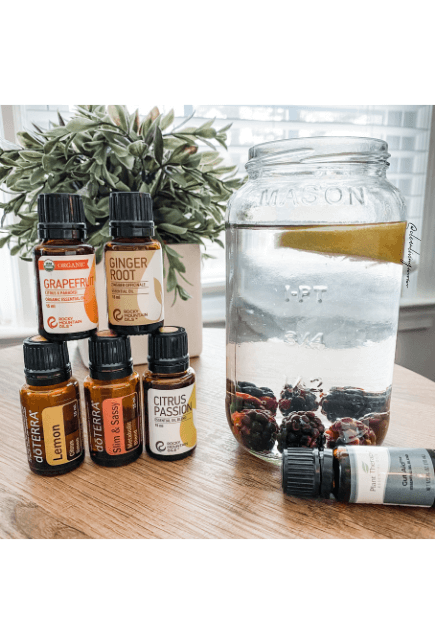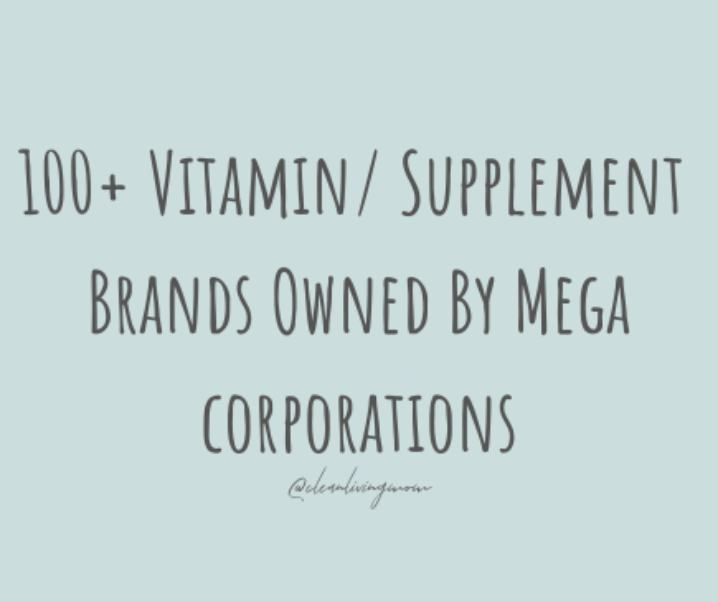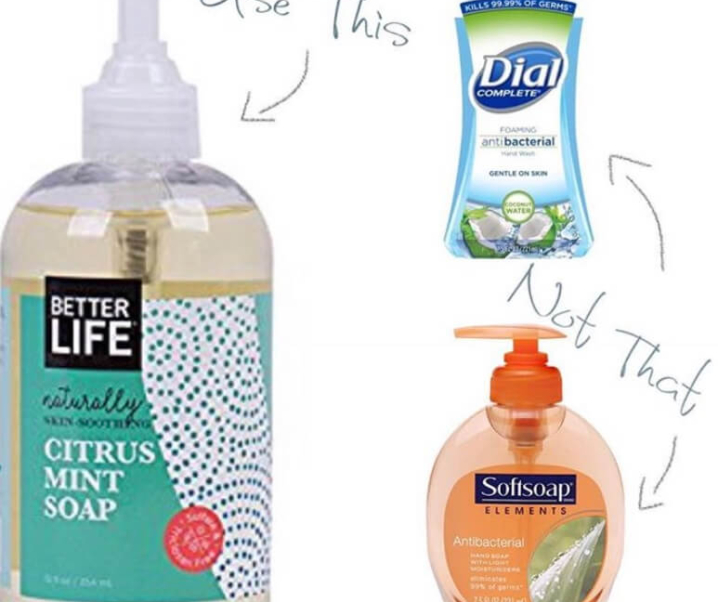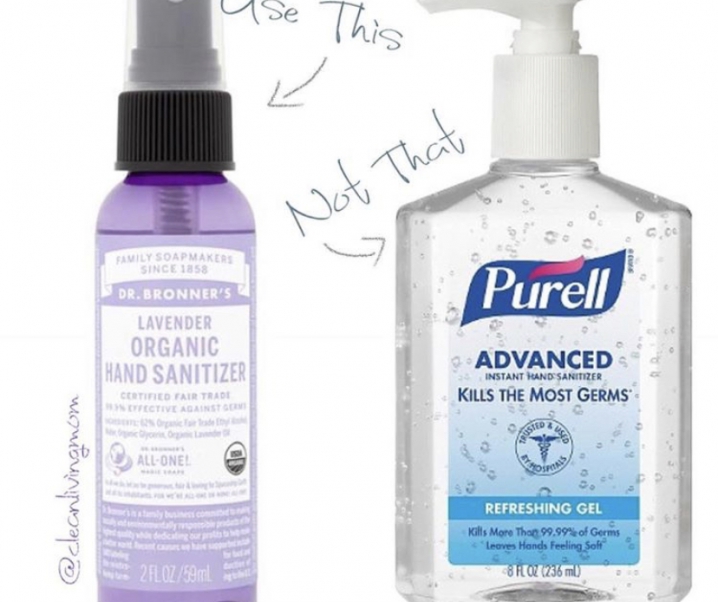If you know any doTERRA or Young Living rep, then I’m sure you’ve been told it’s totally safe to drink essential oils in water…and that they do it all the time and they’re fine. Let’s break down the science of this and let me give you an “outside of an mlm oil brand” perspective.
I’m gonna be honest, this is a hard one for me guys because I totally use to drink essential oils in water or coffee all the time!
The more I research this topic, though, the more I find that this is one of the biggest no no’s amongst trained professionals when it comes to ingesting oils.
Here are 3 common myths surrounding drinking essential oils in a beverage debunked. (to be clear, this isn’t a post addressing ingestion in general, more so just specifically in a drink)
Myth #1: There are more vitamins and nutrients in an essential oil than a slice of lemon or orange etc because it’s so concentrated…
Believe it or not…this is TOTALLY FALSE!
I hear this a lot when someone’s drinking an essential oil in water instead of just using a slice of a citrus fruit, herb etc. And, it sort of makes sense right? It stands to reason that if 1 drop of lemon oil, is so much more potent then a lemon slice, it therefore means more health benefits! It would take SO many lemon slices to get the same amount of benefits from that 1 drop so isn’t that better?? (actually 1 drop of lemon is only the equivalent of less then 1 whole lemon…not as much as you would think)
So I personally asked a few chemists and experts on essential oils and this is what they said:
“You will not find any vitamins, minerals or nutrients in essential oils. Compare any nutrition label with any GC/MS or GC-FID; they won’t be there. For example, ascorbic acid (vit. C) is water soluble. Therefore, in either expressed or steam/hydro-distilled biomass, any ascorbic or other acids, nutrients or minerals which are water soluble will separate out into the water or hydrosol component of the distillate or expression. Any nutrients, acids or minerals that are too heavy for volatilisation will stay behind in the biomass.”
A food scientist had this to say:
Any GC/MS or GC-FID analysis will show that there are no “oil-soluble” vitamins in an essential oil…any nutrients, vitamins etc will separate into the water from expression or distillation. So, to be absolutely clear, there are NO fats, nutrients, vitamins, minerals or anything of digestible calorific value in essential oils.
In other words, it’s chemically and physically impossible for nutrients, vitamins or minerals to be in essential oils because of their structure and they are too heavy to come over in the process (no matter if it’s steam distilled or cold pressed). Only the volatiles are in essential oils because those are extremely light molecules.
This isn’t even to mention the oxidation process that occurs and degrades things like vitamin c for example which further proves there’s none present! (you can go down a real chemistry rabbit hole there)
I’d like to also take this moment to apply this to swapping essential oils out for spices in cooking or trying to make the ridiculous argument that celery oil will have the same health benefit to drinking celery juice. Absolutely not. Taking celery essential oil in no way should replace or has the same benefits to drinking the straight up juice. If you’re using essential oils in these ways thinking its the same health benefit, just know it doesn’t.
SO…to recap here…there’s actually no nutritional benefit to an essential oil that would make it more beneficial then just adding the real food to your drink. For example, 1 slice of lemon in your water is roughly 6% of your daily vitamin c. Not a whole lot, but more then nothing at all lol.
Myth #2: It’s perfectly safe! An Essential oil is completely natural, therefore it couldn’t be harmful.
Problem #1: Just because something is naturally occurring doesn’t inherently make it safe. Heavy metals are naturally occurring and those are definitely not safe. There are numerous types of plants, berries, mushrooms etc that when ingested can kill you. Poison ivy is “all natural” but you won’t find that as an essential oil! lol
Problem #2: The chemistry doesn’t work here. Ever heard that old phrase, “oil and water don’t mix”? Well that’s exactly what’s happening here. Because of an essential oils’ carbon backbone, they won’t mix with water and will just sit on the top (even if you stir it in, it will just float right back to the top seconds after stirring it)…because of it’s chemical makeup…you will NEVER be able to shake it or stir it hard enough to override chemistry and mix it properly and safely enough for drinking…not even if you stir it really fast then drink immediately. It’s science…it will never mix.
Problem #3: Essential oils are looking for something to bind to…because of their chemical makeup they are always attracted to high fatty substances, tissue etc…that’s why it dilutes so well with high fat containing carrier oils! So as soon as you drink it, it’s binding to the inside of your mouth, throat, tongue etc. (this same theory would apply to adding oils to bath water. It’s going to bind to whatever part of your skin touches it first)
Problem #4: Water enhances the rate of absorption of an essential oil…so not only is it being swallowed “undiluted”, it’s being absorbed faster then usual. When swallowing something, it passes over delicate tissue in your throat, and many oils are known mucus membrane irritants (and obviously very potent and powerful!) so overtime that is going to damage your throat and esophagus! Think about how powerful lemon essential oil is at removing sticky substances or grease or how it eats away at plastic and styrofoam etc…yes, your body is more resilient but no…not that resilient.
Check out the injury reports on this for further proof or just compare the chemical components of various oils to that of, gasoline, cleaners etc…here a chemist compares frankincense to paint thinner and shows the similarities. “The point is to understand they are the same class of molecules (terpenes), even have some of the exact same molecules in common (such as alpha-pinene being the main component of each) and they are both distilled from tree resin. I just want people to understand how these essential oils are tremendously good organic solvents and we need to think about this before deciding how to use them safely”
An aromatherapist also had this to say,
“One of the jobs of lipids is to “protect the organs from shock and damage and provide the body with insulation from cold, toxins, and other threats such as the entry or microorganisms”. Lipids are present because they NEED to be there to keep us safe from these threats. Erode this lining, and there is REAL RISK. I have some research for you to do. Look up: GERD, and the real risk to the lipid lining, Barrett’s esophagus, Health risks when the lipid lining of the esophagus is altered.”
I looked it up, basically it’s bad and can’t be undone once damaged.
Myth #3: I drink essential oils all the time and have never had a problem!
I’m all for listening to your body and doing what works for you…but basically what you’re saying here with this argument is…”well I haven’t gotten hurt yet…so I’m going to continue to roll the dice and keep doing it until I get hurt…then of course I would stop. And I don’t know anyone who this has happened to, so it must not be true.” lol That’s a risky game to play my friend. I’d urge you to keep these two things in mind:
- as Robert Tisserand has said, “Not everyone reacts in the same way to essential oils, but safety guidelines are there to protect you. And remember – not every risk is apparent – you don’t know that hepatotoxicity or carcinogenicity or teratogenicity are happening when they are happening – unfortunately, there’s no warning sign.” (one of the worlds leading experts in aromatherapy)
- If you’re STILL not sure if it’s really that bad to drink essential oils…think about who’s been telling you it’s totally safe. Ask yourself, have they had formal training? Do they understand the chemical constitutes of essential oils? Do they have a background in chemistry? I’ll even go as far to say, look at the people who run doTERRA and Young Living who actually speak about oil usage and say this is safe…their “experience with essential oils” is typically related to the testing process, the market in general, farming etc and not actually essential oil safety. Also…even if there are a few experts who still say “oils in a beverage is totally safe”…weigh that against the VAST amount of other experts who strongly disagree.
At the end of the day, you gotta do what you believe is best. If you’ve got research/ proof that it’s safe, I’d genuinely love you to email it to me! We’re all just looking to do what’s best and safest right?
Was this post helpful? Share it with a friend and comment and tell me what you think!
Sources:
http://aromatherapyunited.org/wp-content/uploads/2019/02/Injury-Reports-2014-2018.pdf
https://www.facebook.com/EssentialOilUniversity/posts/10156183455603083?hc_location=ufi
lifeholistically.com/essential-oils-vitamins-minerals/
stillpointaromatics.com/blog/whats-so-bad-about-drinking-essential-oils/
https://lifeholistically.com/?s=drinking+essential+oils
Tisserand, R., Young, R. Essential Oil Safety (2nd Ed) Elsevier (p. 330-331)
Chemistry of Aromatherapeutic Oils 3rd Edition (E. Joy Bowles)
tisserandinstitute.org/why-safety-is-important/






















Tell the community about your experience